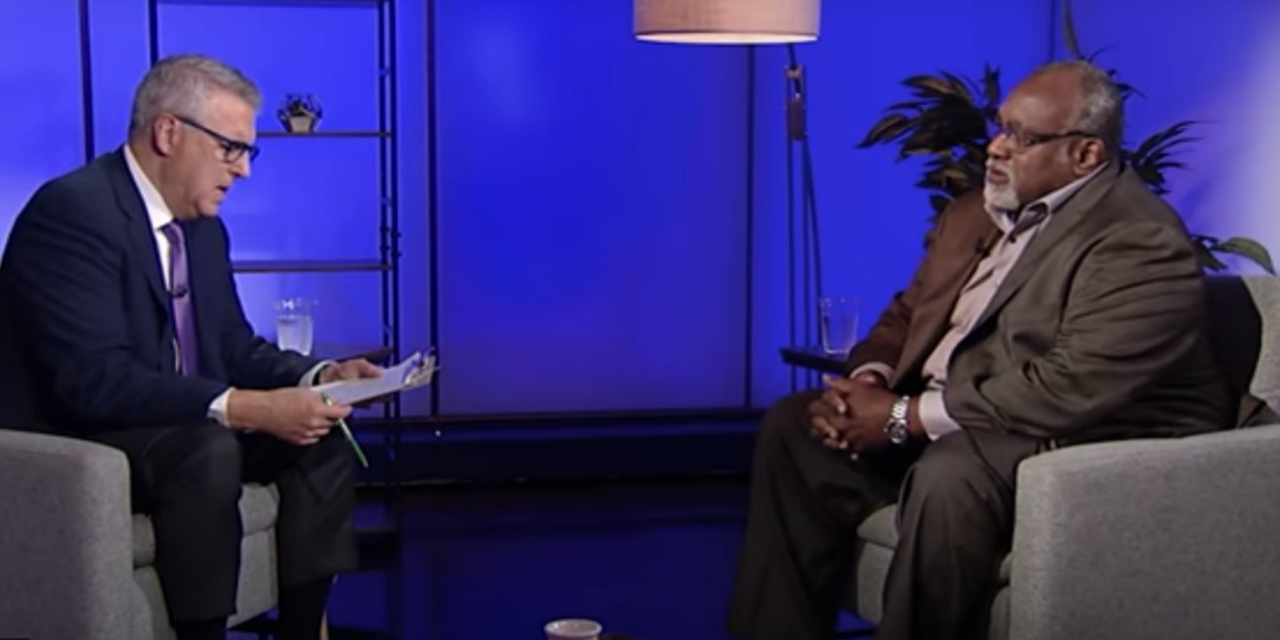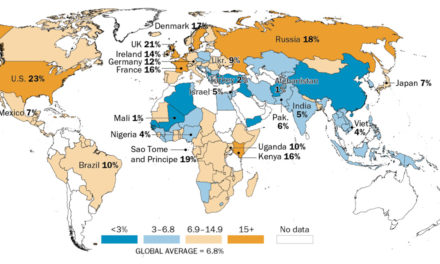Suppose you had the opportunity to personally invite one of the most brilliant African-American scholars into your living room this evening and listen as he details why our current political and national discussion on race and family is so damaging to the lives and minds of our children.
Well, you do, thanks to the creative generosity of Stanford University’s esteemed Hoover Institution.
In late November 2021, the great Glenn Loury, a celebrated professor of social science and economics at Brown University, and a Distinguished Visiting Fellow at the Hoover Institution, sat down for a riveting one-on-one with Peter Robinson to discuss the current state of affairs in racial politics and the family in American today.
Robinson introduced Dr. Loury as a man who “traveled great distances.” He was not just speaking geographically, but socio-economically. Glenn Loury grew up very poor on the South Side of Chicago, became an unwed father in his teens, and was involved in drugs, but went on to earn a Ph.D. from MIT and become a tenured professor of economics at Harvard at 33.
The following 40 minute interview would be a great exchange of important ideas to share with your young adult children and grand-children.
Peter Robinson and Dr. Loury discuss many things, including a lecture Loury gave in 2005 in Richmond, VA entitled, “On Being a Christian and an Economist.” In that talk, Loury explains that when it comes to helping black Americans attain their share of the American dream, “there is space for appealing to people’s spiritual responsibilities and urging them to look differently at how it is they should live their lives.” Loury adds, “What program could be more effective at encouraging parents to take responsibility for their children than persuading them they are God’s stewards in the lives of their children? A clever economist can come up with all kinds of schemes to motivate them financially, but when parents embrace this idea, that parenting is a precious responsibility, a sacred obligation to raise their children, they’re going to get the job done that we want them to get done. Raising issues of morality and values is vitally important. The family and the church are the natural sources of moral teaching – indeed the only sources.”
Loury contends that when we talk about advancing the lives of African-American citizens, we too often get it exactly backwards, “As my friend Shelby Steele is fond of saying, ‘The problem before us now is not a problem of oppression. It’s a problem of freedom.’ It is a problem of seizing opportunity, of taking responsibility.” The primary struggle of black Americans has been fully seizing the opportunity of their own hard-fought freedom.
Loury adds, “Whereas in 1968, it was a compelling argument to say, ‘Two nations, separate and unequal.’ In the year 2021, the ball is in our court, I speak now of African-Americans. This is basically a level playing field that we are dealing with right here. In the freest, most prosperous, most dynamic society on the planet, one that millions of people are willing to risk everything just to get into, we are birth-right citizens here. The ball is in our court.”
Loury continues, “The metaphor that Al Sharpton invoked at George Floyd’s funeral, ‘America, take your knee off our neck’ is fiction. It’s a lie. It’s not an apt description of the actual circumstance. For a black person to fear going out of their door because of police brutality is like being afraid of going outside because you are afraid of being struck by lightning. That is objectively an accurate characterization of the circumstance” in America today.
Loury also speaks to the importance of the family for black America.
“Look at the family. You see two-thirds of black kids born to unmarried women. You should also look at the abortion rate among African-Americans. Its stratospheric. The gender relations between men and women, the central focus of how societies reproduce themselves in a healthy fashion, is deeply, deeply troubled today.”
Loury is no fan of the work of Black Lives Matters. He believes they are wholesale more harmful to black Americans than helpful. “And if you lay that alongside the actual threats to black life, which sadly are coming from the possibility of violent, criminal victimization in the neighborhoods in which they live, often by other black people, the hyperbole, the schtick they have going here, they narrative they are pushing. I am speaking of Black Lives Matters. I’m speaking of anti-racist activists who take the unfortunate few incidences of police mistreatment of black people and use it as a general characterization of the circumstances of black people in the country, it is something that a woke-buster like myself is willing to devote time debunking.”
He also discusses the power of Supreme Court Justice Clarence Thomas’ personal life story for elevating young African-Americans to a better life, “You may disagree with this or that judicial opinion of the great Clarence Thomas. But let me tell you about his life. He grew up in rural Georgia, dirt poor, scraped his way along, etc. You want a model of African-American heroism, you want an ideal of what it is we should teach our kids to aspire to? I don’t see how you could do any better than the life of Justice Thomas.”
“But guess what?” Loury queries. “When the National Museum of African American History and Culture decided to [build] a museum, they didn’t even have an acknowledgement of the existence of Clarence Thomas in it until people started complaining about that. Think of that.” He adds, “Justice Thomas is on my syllabus for my students because he’s a man who thinks for himself. He’s an iconic representative of the cost you pay for thinking for yourself and I wanted my students to learn of his example.”
Professor Loury said in a recent lecture at Oxford University, “I am a black intellectual and I must stand with my people.” Peter Robinson asks him, “You’re more than 70 years old. You don’t have to prove anything to anyone. You have tenure. You have enough money. Why? Why not just relax and enjoy yourself?”
Yet, Professor Loury still fights because he must. And we each have the blessing and opportunity to learn from his wisdom and example. We should seize that opportunity.






